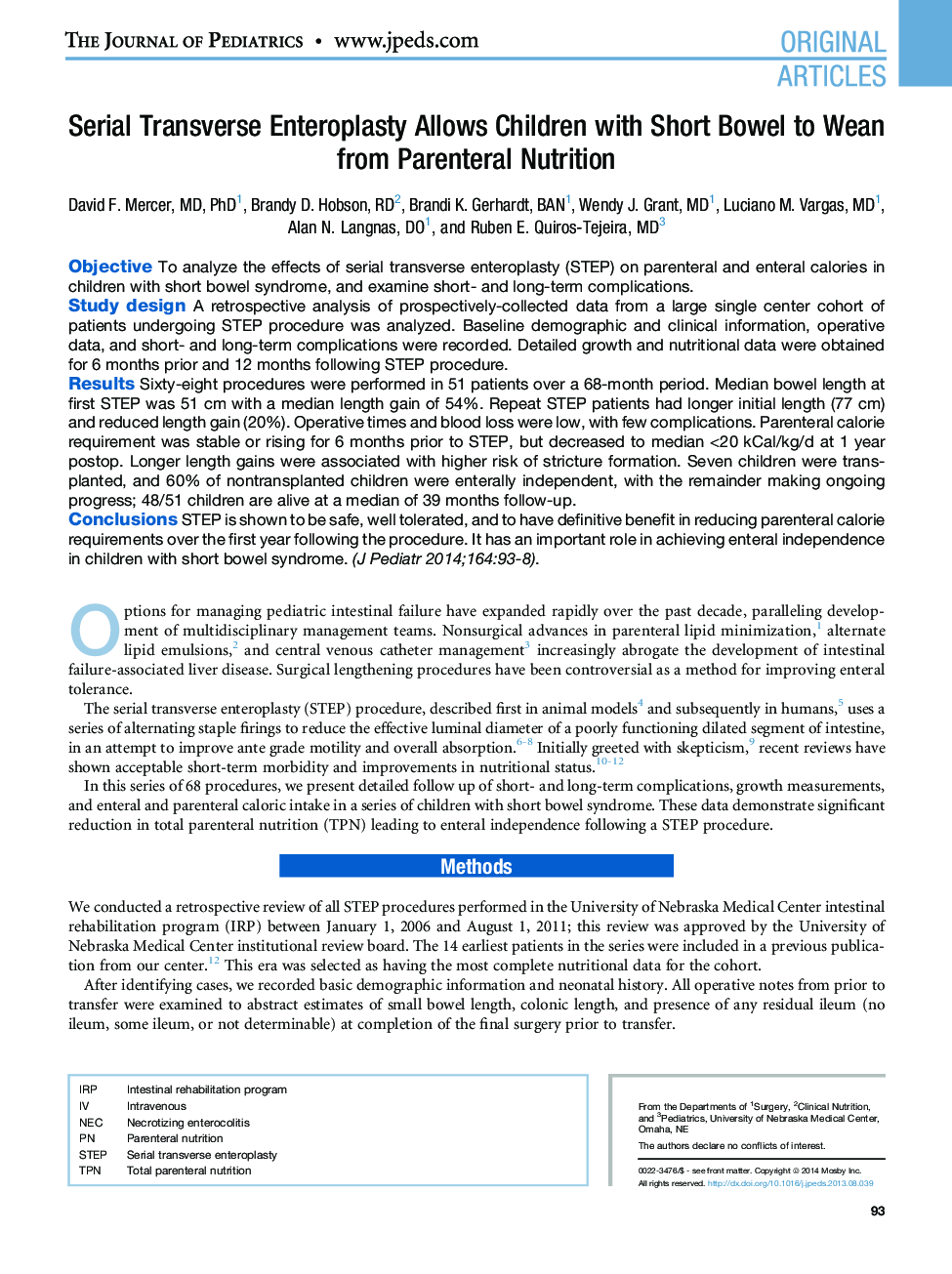| Article ID | Journal | Published Year | Pages | File Type |
|---|---|---|---|---|
| 4165015 | The Journal of Pediatrics | 2014 | 6 Pages |
ObjectiveTo analyze the effects of serial transverse enteroplasty (STEP) on parenteral and enteral calories in children with short bowel syndrome, and examine short- and long-term complications.Study designA retrospective analysis of prospectively-collected data from a large single center cohort of patients undergoing STEP procedure was analyzed. Baseline demographic and clinical information, operative data, and short- and long-term complications were recorded. Detailed growth and nutritional data were obtained for 6 months prior and 12 months following STEP procedure.ResultsSixty-eight procedures were performed in 51 patients over a 68-month period. Median bowel length at first STEP was 51 cm with a median length gain of 54%. Repeat STEP patients had longer initial length (77 cm) and reduced length gain (20%). Operative times and blood loss were low, with few complications. Parenteral calorie requirement was stable or rising for 6 months prior to STEP, but decreased to median <20 kCal/kg/d at 1 year postop. Longer length gains were associated with higher risk of stricture formation. Seven children were transplanted, and 60% of nontransplanted children were enterally independent, with the remainder making ongoing progress; 48/51 children are alive at a median of 39 months follow-up.ConclusionsSTEP is shown to be safe, well tolerated, and to have definitive benefit in reducing parenteral calorie requirements over the first year following the procedure. It has an important role in achieving enteral independence in children with short bowel syndrome.
